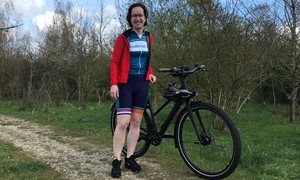3 February 2020
Abstract
Background
Some studies in the Netherlands have gauged public views on principles for healthcare priority setting, but they fall short of comprehensively explaining the public disapproval of several recent reimbursement decisions.
Objective
To obtain insight into citizens' preferences and identify the criteria they would propose for decisions pertaining to the benefits package of basic health insurance.
Methods
Twenty-four Dutch citizens were selected for participation in a Citizen Forum, which involved 3 weekends. Deliberations took place in small groups and in plenary, guided by 2 moderators, on the basis of 8 preselected case studies, which participants later compared and prioritized under the premise that not all treatments can or need to be reimbursed. Participants received opportunities to inform themselves through written brochures and live interactions with 3 experts.
Results
The Citizen Forum identified 16 criteria for inclusion or exclusion of treatments in the benefits package; they relate to the condition (2 criteria), treatment (11 criteria), and individual characteristics of those affected by the condition (3 criteria). In most case studies, it was a combination of criteria that determined whether or not participants favored inclusion of the treatment under consideration in the benefits package. Participants differed in their opinion about the relative importance of criteria, and they had difficulty in operationalizing and trading off criteria to provide a recommendation.
Conclusions
Informed citizens are prepared to make and, to a certain extent, capable of making reasoned choices about the reimbursement of health services. They realize that choices are both necessary and possible. Broad public support and understanding for making tough choices regarding the benefits package of basic health insurance is not automatic: it requires an investment.
Publication
Increasing the Legitimacy of Tough Choices in Healthcare Reimbursement: Approach and Results of a Citizen Forum in The Netherlands.
Bijlmakers L, Jansen M, Boer B, van Dijk W, Groenewoud S, Zwaap J, Helderman JK, van Exel J, Baltussen R.

Abstract
Background
Some studies in the Netherlands have gauged public views on principles for healthcare priority setting, but they fall short of comprehensively explaining the public disapproval of several recent reimbursement decisions.
Objective
To obtain insight into citizens' preferences and identify the criteria they would propose for decisions pertaining to the benefits package of basic health insurance.
Methods
Twenty-four Dutch citizens were selected for participation in a Citizen Forum, which involved 3 weekends. Deliberations took place in small groups and in plenary, guided by 2 moderators, on the basis of 8 preselected case studies, which participants later compared and prioritized under the premise that not all treatments can or need to be reimbursed. Participants received opportunities to inform themselves through written brochures and live interactions with 3 experts.
Results
The Citizen Forum identified 16 criteria for inclusion or exclusion of treatments in the benefits package; they relate to the condition (2 criteria), treatment (11 criteria), and individual characteristics of those affected by the condition (3 criteria). In most case studies, it was a combination of criteria that determined whether or not participants favored inclusion of the treatment under consideration in the benefits package. Participants differed in their opinion about the relative importance of criteria, and they had difficulty in operationalizing and trading off criteria to provide a recommendation.
Conclusions
Informed citizens are prepared to make and, to a certain extent, capable of making reasoned choices about the reimbursement of health services. They realize that choices are both necessary and possible. Broad public support and understanding for making tough choices regarding the benefits package of basic health insurance is not automatic: it requires an investment.
Publication
Increasing the Legitimacy of Tough Choices in Healthcare Reimbursement: Approach and Results of a Citizen Forum in The Netherlands.
Bijlmakers L, Jansen M, Boer B, van Dijk W, Groenewoud S, Zwaap J, Helderman JK, van Exel J, Baltussen R.
-
Want to know more about these subjects? Click on the buttons below for more news.
Related news items
.aspx?width=800&height=533&ext=.jpg&type=BlockColumn1Zoom1)
New test for Lyme disease is not reliable
15 June 2022 To determine whether someone has Lyme disease, doctors in the Netherlands often use antibody tests. For some time now, so-called cellular tests have been available on the market. However, the VICTORY study published in The Lancet Infectious Diseases has found that these tests are not reliable. go to page
Researcher Marleen van Gelder cycles to Norway Action for research on preterm births
14 April 2022 A special action by colleague Marleen van Gelder, assistant professor in the Department of Health Evidence. In exactly two months' time, she will be getting on her bicycle to draw attention - and especially money - to research into premature births. go to page
Wija Oortwijn elected vice-president Health Technology Assessment international
6 June 2019 Wija Oortwijn has been elected vice-president of Health Technology Assessment international (HTAi) for the period 2019-2021. go to page
Beyond the scientist: Ellen van Jaarsveld
21 November 2018 Ellen is assistant Professor at the Department for Health Evidence and at the Department of Primary and Community Care, thanks Jamie for inspiring her husband to cook delicious family meals. go to page
Shorter-term provision of antibiotics in Lyme disease is cost-effective
25 April 2018 In a PLOS One publication Eddy Adang, Anneleen Berende en Bart Jan Kullberg, showed that shorter-term provision of antibiotics in patients with persistent symptoms attributed to Lyme disease is cost-effective. go to page
